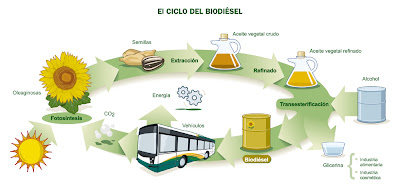New York City's first biodiesel company, Tri-State Biodiesel, is proud to announce that it will be filling FreshDirect's delivery trucks with clean-burning biodiesel blended fuel. The biodiesel fuel, which is made primarily from waste cooking oil collected from New York City restaurants, will be phased in to FreshDirect's fuel supply over the course of the next 2 months.

By February 08, FreshDirect's entire fleet will be biodiesel powered, making it the largest private trucking fleet in the city to go biodiesel.
This news represents a great milestone for New York City, as it helps to establish clean-burning, renewable, biodiesel fuel as a mainstream option for the cities fleet managers. This is also a victory for Tri-State's strategy of urban biodiesel from recycled oils as a sustainable model for biofuels production. According to the Department of Energy's National Renewable Energy Laboratories, biodiesel made from recycled cooking oil produces 5.5 times the amount of energy used to create it.
Tri-State Biodiesel estimates FreshDirect's switch to biodiesel to result in a yearly reduction of approximately 7.5 million pounds of global warming- causing carbon dioxide, here in NYC. In addition, this switch will result in reduced levels of other harmful emissions such as carbon monoxide, sulfur, unburned hydrocarbons and particulate matter. All of these pollutants have been linked to health problems such as asthma and cancer, and will be reduced by FreshDirect's use of homegrown biodiesel fuel.

By February 08, FreshDirect's entire fleet will be biodiesel powered, making it the largest private trucking fleet in the city to go biodiesel.
This news represents a great milestone for New York City, as it helps to establish clean-burning, renewable, biodiesel fuel as a mainstream option for the cities fleet managers. This is also a victory for Tri-State's strategy of urban biodiesel from recycled oils as a sustainable model for biofuels production. According to the Department of Energy's National Renewable Energy Laboratories, biodiesel made from recycled cooking oil produces 5.5 times the amount of energy used to create it.
Tri-State Biodiesel estimates FreshDirect's switch to biodiesel to result in a yearly reduction of approximately 7.5 million pounds of global warming- causing carbon dioxide, here in NYC. In addition, this switch will result in reduced levels of other harmful emissions such as carbon monoxide, sulfur, unburned hydrocarbons and particulate matter. All of these pollutants have been linked to health problems such as asthma and cancer, and will be reduced by FreshDirect's use of homegrown biodiesel fuel.
"I congratulate FreshDirect's leadership in helping New York City clean up its air and become more energy independent, and hope other fleets in the city will step up and do the right thing as well," says Tri-State's founder Brent Baker.
"The announcement is the culmination of an ongoing partnership between FreshDirect and Tri-State Biodiesel. FreshDirect first partnered with Tri-State this summer for the collection of FreshDirect's used cooking oils to be converted into a source of biodiesel fuel. today, we are closing the loop and powering our vehicles with the very same clean and efficient fuel that we have contributed to producing. This partnership underlines FreshDirect's strong commitment to being a responsible member of the New York City community," says Adrian Williams, FreshDirect's Senior Vice President of Transportation.
"The announcement is the culmination of an ongoing partnership between FreshDirect and Tri-State Biodiesel. FreshDirect first partnered with Tri-State this summer for the collection of FreshDirect's used cooking oils to be converted into a source of biodiesel fuel. today, we are closing the loop and powering our vehicles with the very same clean and efficient fuel that we have contributed to producing. This partnership underlines FreshDirect's strong commitment to being a responsible member of the New York City community," says Adrian Williams, FreshDirect's Senior Vice President of Transportation.
Via: SPX
No comments:
Post a Comment